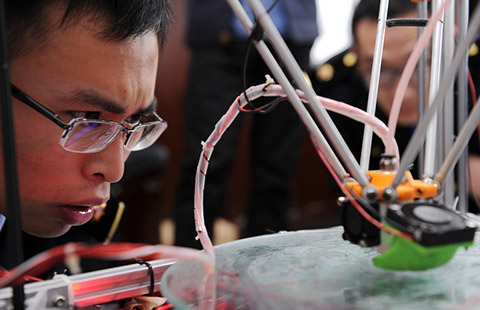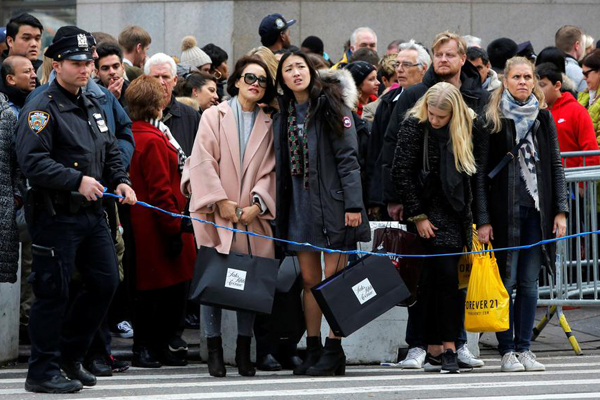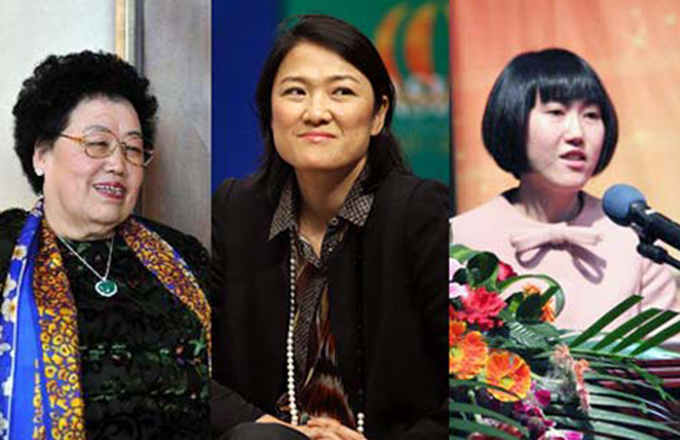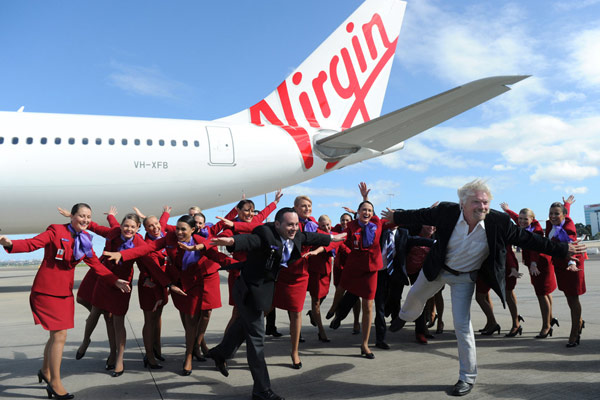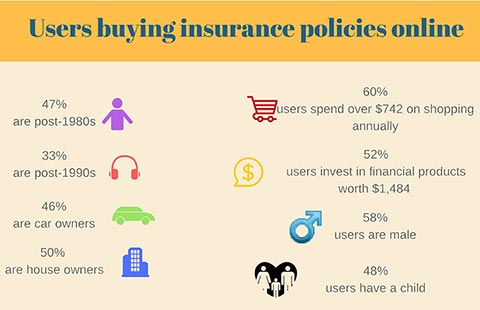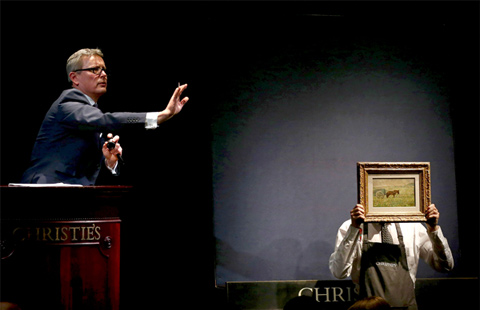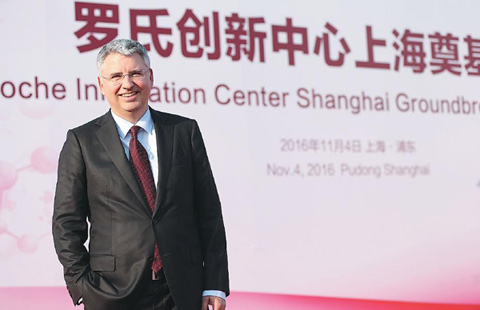High-end market switch as buyers opt for local entry-level models
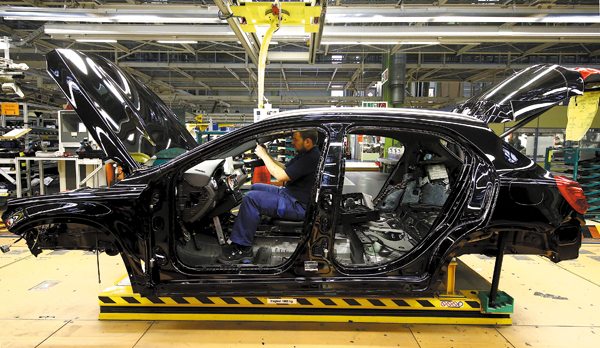 |
|
An employee of German car manufacturer Mercedes-Benz works on the interior of a GLA model at the production line at the factory in Rastatt, Germany, on Jan 22. [Photo/Reuters] |
The Chinese premium car market may expand this year at a pace twice that of 2015, fueled by people in major cities buying more locally made entry-level models.
A total of 1.56 million high-end vehicles were delivered in the first nine months this year in the world's largest car market, registering a 10.8 percent year-on-year growth, after developing at a rate of 11 percent last year, according to figures from LMC Automotive Consulting.
Industry experts believe the downward market positioning trend among the premium brands accelerated market expansion, and their mid-size crossover line-ups, including the Audi Q3, BMW X1 and Mercedes-Benz GLA, have been driving up sales volume.
"Purchases by individual customers of premium brands are replacing business purchases, so the mid-size sport utility vehicles are gaining popularity over the large models that were preferred in the past," John Zeng, managing director of LMC Automotive Consulting Shanghai, told China Daily. "Such locally made products won a portion of individual customers from the massive car makers."
LMC also found the premium brands' penetration rate touched a historic high at roughly 26 percent in Beijing, Shanghai, Guangzhou and Shenzhen. The market penetration rate describes the proportion that these brands contributed to the entire new car sales volume in the four major cities.
"The premium brands' high penetration rate in the four cities has overtaken the mature markets in developed countries," Zeng said. "Penetration rates are 16 percent on average in Germany, and 14 percent in the United States."
Zheng Yun, principal of the automotive practice at Roland Berger Strategy Consultants, said that high-end brands are more reachable this year. "They are offering a slew of products at relatively lower prices," he said.
Favorable taxation policies also helped save about 20,000 yuan ($2,953) for buyers of the Audi Q3 1.4-liter turbocharged, BMW X1 1.5-liter turbocharged and Mercedes-Benz GLA 1.6-liter turbocharged. The Chinese central government introduced a stimulus measure in October 2015 which halved the tax on purchases of passenger vehicles powered by engines that are 1.6 liters or smaller.
Playing catchup
Volkswagen's high-end brand, Audi, maintained its lead in the Chinese premium car market with 440,233 units sold in the first three quarters of this year.
BMW stayed at No 2 position with a year-on-year increase of about 10.6 percent, closely followed by Mercedes-Benz, which achieved a 30 percent surge in sales. The year-to-date volume gap between BMW and Mercedes-Benz was only about 34,000 units.
Zeng predicted that BMW and Mercedes-Benz would be on a par with each other in their largest single market, and he saw the high possibility that Mercedes-Benz might take BMW's No 2 position.
"Mercedes-Benz is catching up quickly, as its lineups renewed through the year could be more attractive to the customers," he said. "The majority of BMW's models were renewed last year, so they might not be that fresh in the buyers' eyes."
Jia Xinguang, a senior analyst with the China Automobile Dealers Association, commented: "BMW used to keep its eyes on the market leader, Audi, and set targeted strategies. Mercedes-Benz was far behind with only about half of the volume of BMW.
"Now Mercedes-Benz's unique dealership model is showing its strength. The carmaker and the major seller, Lei Shing Hong Ltd, are the only pair in the industry negotiating marketing strategies."
Acura stirs 2nd tier
Honda's premium arm Acura is betting big on its first China-made vehicle, the CDX. Local manufacturer GAC Honda said the entry-level SUV would rival the top three sellers: the Audi Q3, BMW X1 and Mercedes-Benz GLA.
GAC Honda expects to sell more than 10,000 Acuras by the end of 2016, however only 3,541 were delivered by the end of September.
Industry insiders found the competition in the premium segment of the Chinese auto market was intensifying, but the overall pattern is well established. The three German giants-Audi, BMW and Mercedes-Benz-are firmly in the top three positions, leaving their rivals to share the rest of the cake.
Jaguar Land Rover has led the second-tier premium brands with 82,641 units sold in the past three quarters, followed by Lexus, Cadillac, Volvo and Infiniti.




